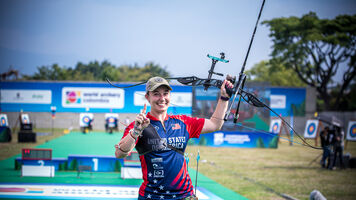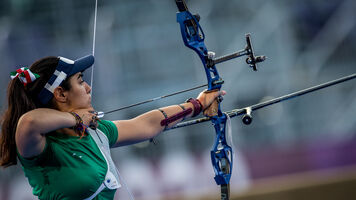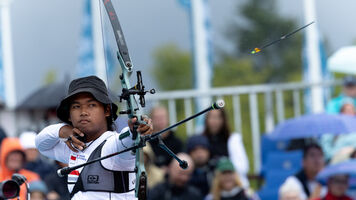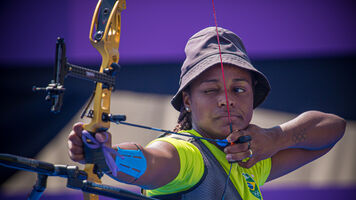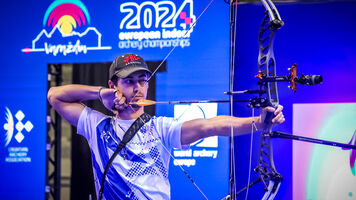Steve Prowse: “There’s no magic fix”
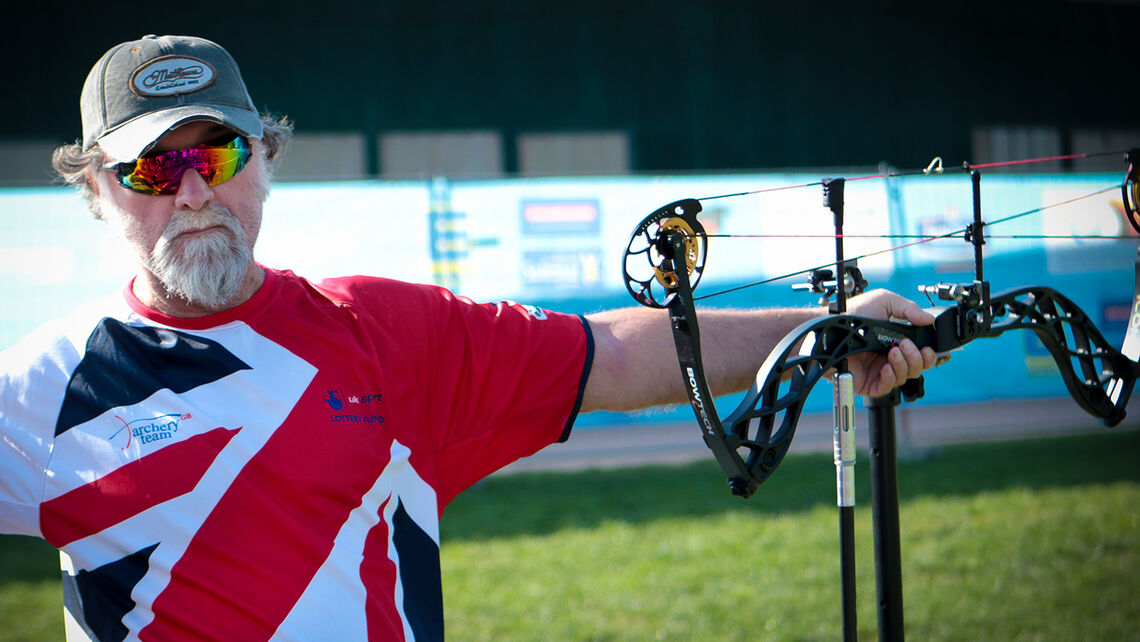
Want to see inside the mind of an international archery athlete? We’ll be asking some of the world’s best for advice, expertise and an idea of their approach to the sport.
This time, reigning European and World Champion and multiple world record holder for the visual impaired category Steve Prowse answers our questions…
1. What makes the perfect archer?
I don’t think there is such a thing as the perfect archer. We all have strengths and many things that we want to improve on.
A great archer in my opinion is one who recognises the things that they do well, but more importantly understands areas that they have to strengthen. It’s not always related to technique, many archers appear to neglect the psychological aspects of archery. Many can put arrows in the 10-ring in practice, few manage it in competition.
2. What’s the best way to improve?
One of the most important things is attention to minute details. Pay attention to how you set yourself before commencing your shot. Write out a shot routine for yourself. Number each individual action and go through it in detail when executing your shot. If you look at any profession that involves movement – anything from athletics to snooker – the top athletes appear to move with a fluidity and ease. You want your shot to be fluid and, most importantly, repeatable in every detail.
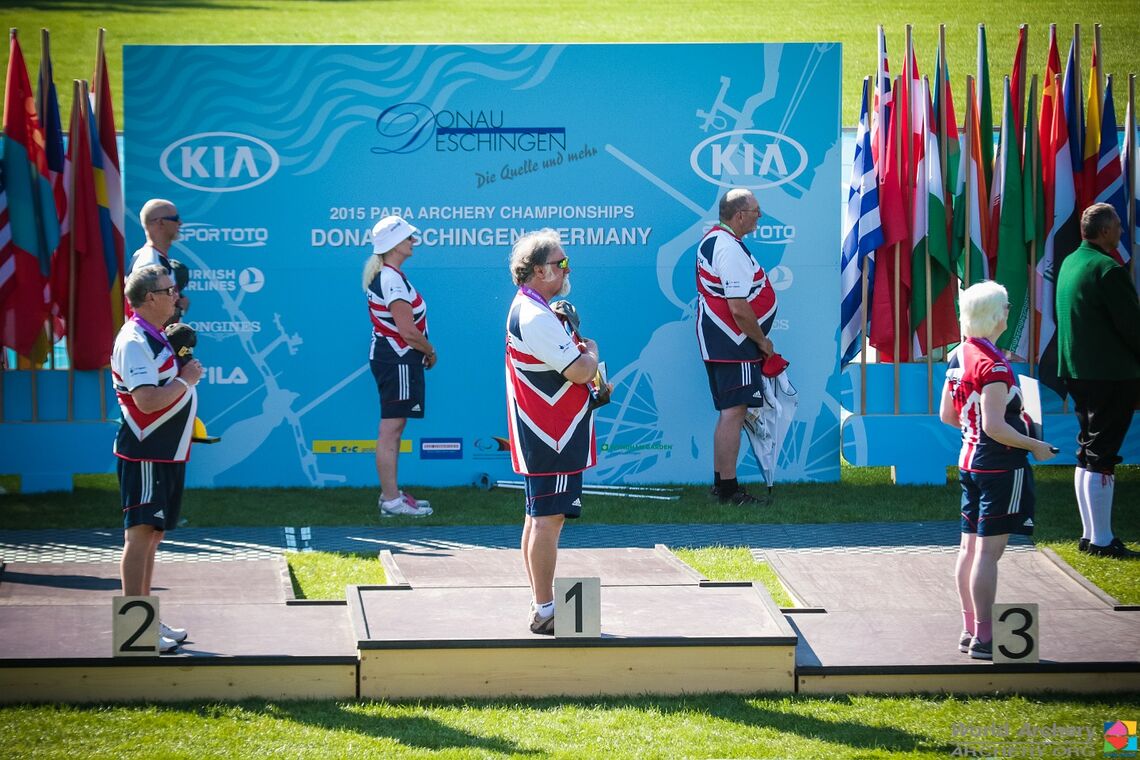
Some days are easier than others, however I think that on a day when things are not going as well as expected I learn more. This relates back to the importance of having a solid shot routine. A good archer learns from these days and concentrates on the detail.
To beginners, I would advise to find yourself a good mentor that can shoot a bow at a good standard and will work with you. It is important to understand that it is a two-way process, constantly feed back to each other. Set yourself goals and a time period in which to achieve these.
Also look at other good archers and learn from their technique. Sometimes it is as important to learn what not to do, as it is what to do. Try to get your technique right from the start, it is detrimental to practise the wrong thing for weeks, then have to learn how to break the bad habits.
3. training vs competition
I think the difference can be summed up by the word ‘pressure’. A bad shot in practice is easily forgotten. A bad shot in competition can stay with you for a long time.
In practice I shoot with fully-sighted archers, which makes me shoot better. I always try to shoot with good archers; this is invaluable in improving your archery. In competitions I do not mind whom I shoot against. I shoot my shot and try not to let anything influence me.

4. HOW DO YOU CHOOSE YOUR EQUIPMENT?
Equipment is a very personal thing. For me personally it is about how the equipment feels. As I am visually impaired, I do not have the visual aspects overriding the physical feel of the shot. Many archers appear to try and ‘buy’ points rather than working on technique. The most expensive piece of kit is not necessarily the right one!
5. Where do you get your motivation from?
It is hard sometimes to stay completely motivated, the hours of practice can be difficult. I enjoy competing so I tend to use practice as a way of competing against myself, always looking to improve.
6. How do you relax?
I have ‘down’ days when I do not touch or think about archery, go out, do anything other than think about archery.
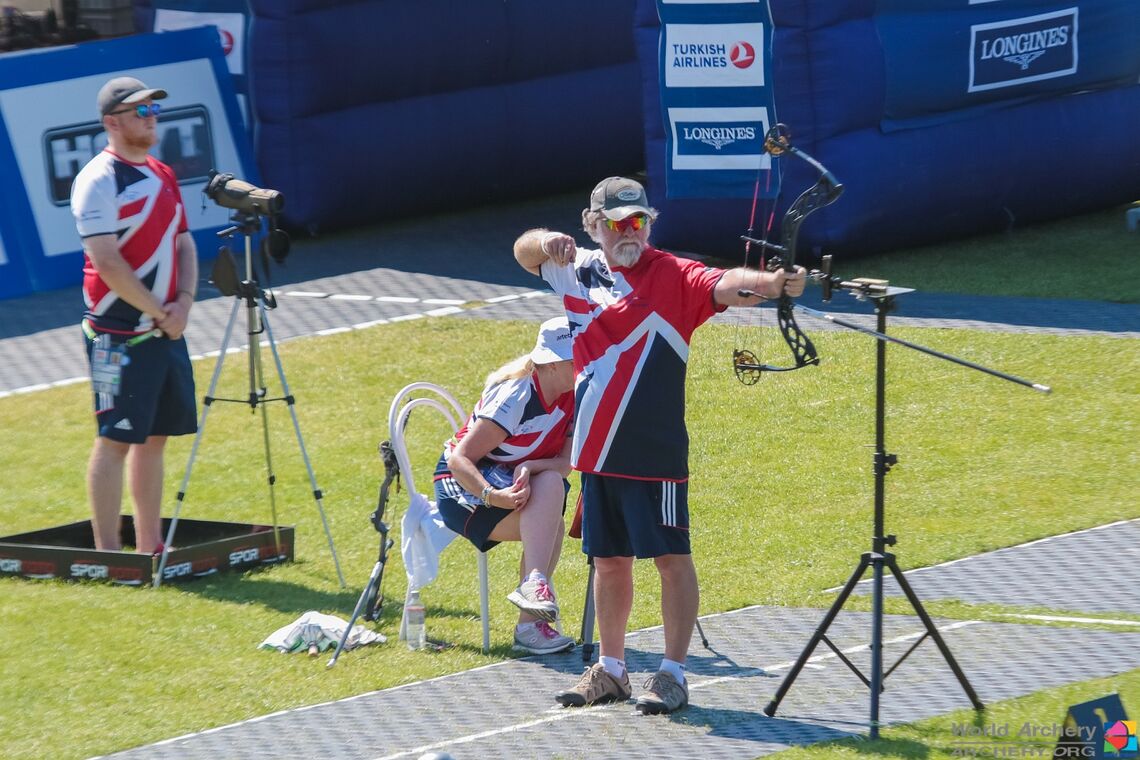
7. HOW DO YOU DEAL WITH DISTRACTION?
I ignore everything going on around me, and only concentrate on visualising and going through my shot routine. I never ask for my score or ask how anybody else is shooting. Only you can have an affect on how you shoot.
8. what’s your archery secret?
There is no body or mental secret. Some people are naturally gifted and some have to work hard. Make the most of what you have. There is no replacement for hard work. There is no magic bullet. Just hard work and pay attention to detail.
World Archery’s International Archer Q&A series spotlights some of the sport’s best athletes. Got a question to ask? Contact us via @worldarchery on Twitter.


